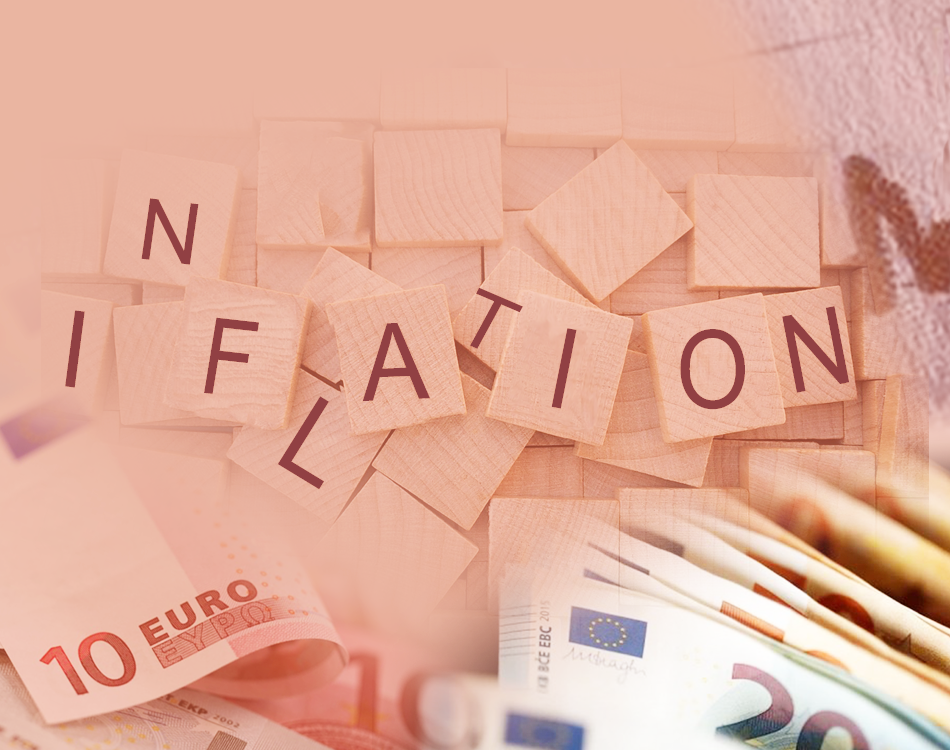
Eurostat’s inflation figures for both the Eurozone and Greece have set new records causing a veritable shock around the continent.
In particular, inflation in the eurozone was 8.6% in June from 8.1% in May, according to the preliminary data published today by the official statistical authority of the European Union.
The picture in Greece
According to Eurostat data, inflation for Greece stood at 12% in June from 10.5% in May and 9.1% in April.
It is worth noting that the Greek statistical authority ELSTAT is expected to announce the national price index on July 8.
Worse to come
As is traditionally the case, the percentage is expected to be higher than the one recorded by Eurostat, as a harmonized index, which implies that inflation in Greece is becoming more and more intense.
However, Greece had not recorded an inflation rate of 12% since December 1993, and June figures are an almost 29-year high.
It is worth noting that yesterday, in its report on monetary policy, the Bank of Greece revised its forecast for growth down to 3.2% (1.8% in the adverse scenario) and expects inflation for the whole of 2022 to stand at 7.6%.
In terms of what the factors contributing to this new rise in eurozone inflation, energy tops the list with the highest annual rate in June (41.9%, up from 39.1% in May), followed by food, alcohol and tobacco (8.9%, as against 7.5% in May), non-energy industrial goods (4.3%, as against 4.2% in May) and services (3.4%, as against 3.5% in May).
A “Headache” for the ECB
However, the new rise in inflation is causing a “headache” for the European Central Bank, which in July is expected to announce the first increase in interest rates since 2011. According to analysts, this increase will be of the order of 0.25 basis points, while a similar move is expected in September.
This will result (provided there are no surprises) at the end of the third quarter with the key ECB interest rate at 0.5% (from 0% today) and the deposit rate at 0% (from -0.5% today), ending the era of negative interest rates.
Latest News

WTTC: Travel & Tourism to Create 4.5M New Jobs in EU by 2035
This year, international visitor spending is set to reach 573 billion euros, up by more than 11% year-on-year

IMF: US Tariffs Shake Global Economy, Outlook Downbeat
IMF slashes global growth forecast to 2.8% as U.S. tariffs create uncertainty and ‘negative supply shock

First Step Towards New Audiovisual Industry Hub in Drama
The project is set to contribute to the further development of Greece’s film industry and establish Drama as an audiovisual hub in the region

Airbnb Greece – Initial CoS Ruling Deems Tax Circular Unlawful
The case reached the Council of State following annulment applications filed by the Panhellenic Federation of Property Owners (POMIDA)

Mitsotakis Unveils €1 Billion Plan for Housing, Pensioners, Public investments
Greek Prime Minister Kyriakos Mitsotakis has announced a new set of economic support measures, worth 1 billion euros, aiming to provide financial relief to citizens.

Alter Ego Ventures Invests in Pioneering Gaming Company ‘Couch Heroes’
Alter Ego Ventures' participation in the share capital of Couch Heroes marks yet another investment by the Alter Ego Media Group in innovative companies with a focus on technology.

Corruption Still Plagues Greece’s Driving Tests
While traffic accidents continue to claim lives on Greek roads daily, irregularities and under-the-table dealings in the training and testing of new drivers remain disturbingly widespread

Pope Francis Died of Stroke and Heart Failure Vatican Confirms
As news of the official cause of death spread, tributes poured in from across the globe. The 1.4 billion-member Catholic Church is united in grief, remembering a pope who championed inclusion, justice, and compassion

Increase in Both Museum Visits, Revenues for 2024
As expected, the Acropolis was the top archeological site in the country, followed by Sounion, Mycenae, the ancient theater of Epidaurus, and Vergina in northern Greece

Where Greece’s Tourists Come From: A Look at 2025’s Top Visitor Markets
The United Kingdom continues to hold the top spot as the largest source of incoming tourism, with 5.6 million seats booked for Greece this summer — up 2.2% from last year. This accounts for 20% of all international air traffic to Greece
















![Ξενοδοχεία: Μεγάλο το ενδιαφέρον για επενδύσεις στην Ελλάδα – Η θέση της Αθήνας [γραφήματα]](https://www.ot.gr/wp-content/uploads/2025/03/Athens-hotels-90x90.jpg)
























 Αριθμός Πιστοποίησης
Αριθμός Πιστοποίησης